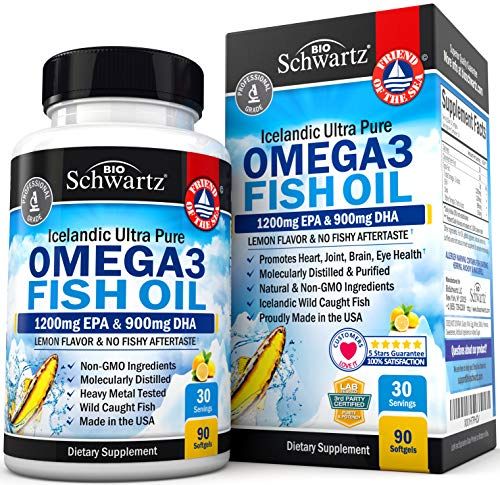
Fish oil supplements have gained significant popularity in recent years due to their potential benefits for heart health. Packed with omega-3 fatty acids, fish oil offers a natural and convenient way to support cardiovascular well-being. In this article, we will explore the numerous advantages of incorporating fish oil supplements into your daily routine.
Understanding Omega-3 Fatty Acids
Omega-3 fatty acids are essential fats that play a crucial role in maintaining optimal health. There are three main types of omega-3 fatty acids – eicosapentaenoic acid (EPA), docosahexaenoic acid (DHA), and alpha-linolenic acid (ALA). While EPA and DHA are primarily found in fish and fish oil, ALA is derived from plant-based sources such as flaxseed, chia seeds, and walnuts.
Benefits of Omega-3 Fatty Acids
Omega-3 fatty acids have been extensively studied for their potential benefits on heart health. 1. Reducing Triglyceride Levels High levels of triglycerides are associated with an increased risk of heart disease. Omega-3 fatty acids, especially EPA and DHA, have been shown to significantly reduce triglyceride levels, thus promoting a healthier cardiovascular profile. 2. Lowering Blood Pressure Hypertension, or high blood pressure, is a major risk factor for heart disease. Regular consumption of omega-3 fatty acids has been linked to a reduction in blood pressure levels, contributing to better overall heart health. 3. Decreasing Plaque Buildup The anti-inflammatory properties of omega-3 fatty acids can help reduce plaque formation in the arteries. By preventing the buildup of plaque, fish oil supplements can aid in maintaining clear and healthy blood vessels. 4. Managing Cholesterol Levels Studies have suggested that omega-3 fatty acids can have a positive impact on cholesterol levels. They can increase high-density lipoprotein (HDL) cholesterol, commonly referred to as the “good” cholesterol, while reducing levels of low-density lipoprotein (LDL) cholesterol, known as the “bad” cholesterol.
Choosing the Right Fish Oil Supplement
With a wide variety of fish oil supplements available on the market, it is crucial to select a high-quality product to maximize health benefits. Consider the following factors when choosing a fish oil supplement:
1. Source of Fish
Ensure that the fish oil is sourced from cold-water, fatty fish such as salmon, mackerel, or sardines. These species are rich in omega-3 fatty acids and low in contaminants.
2. Omega-3 Concentration
Look for a supplement that provides a high concentration of EPA and DHA per serving. This will ensure you are getting the maximum benefits of omega-3 fatty acids.
3. Purity and Quality
Choose a fish oil supplement that has undergone third-party testing to guarantee purity, potency, and absence of harmful contaminants like heavy metals and toxins.
4. Recommended Dosage
Consult with your healthcare provider to determine the appropriate dosage based on your individual needs and health conditions. They will consider factors such as your age, overall health, and any medications you may be taking.
Conclusion
Fish oil supplements rich in omega-3 fatty acids offer a myriad of benefits for heart health. From reducing triglyceride levels to managing cholesterol and blood pressure, these supplements can play a vital role in supporting cardiovascular well-being. However, it is important to make an informed decision when selecting a fish oil supplement. Choose a high-quality product from a reputable manufacturer and consult with your healthcare provider for personalized advice. By incorporating fish oil supplements into your daily routine, you can take a proactive approach to promoting a healthy heart.

